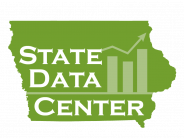Census Tracts
Definition
Census tracts are small, relatively permanent statistical subdivisions of counties designed to be relatively homogeneous units with respect to population characteristics, economic status, and living conditions.
-
Census tracts average about 4,000 inhabitants
-
Census tract boundaries never cross county lines
For 2020 census tract geography :
Look up tools
To find a census tract number for a street address, use these look-up tools:
- The Federal Financial Institutions Examination Council (FFIEC) maintains a look-up system for census tracts at https://geomap.ffiec.gov/FFIECGeocMap/GeocodeMap1.aspx
HMDA and CRA
The FFIEC uses census tract data to monitor compliance with the Community Reinvestment Act (CRA) and the Home Mortgage Disclosure Act (HMDA). See the FFIEC web site at:
HUD Qualified Census Tracts and HUBZones
- The Department of Housing and Urban Development (HUD) determines Qualified Census Tracts, which are one criterion for HUBZone qualification. For more information about HUBZone qualified census tracts, see the HUD web site at http://portal.hud.gov/hudportal/HUD?src=/program_offices/sdb/about/sbtypes
- The Small Business Administration Empowerment Contracting Program determines whether an area qualifies as a HUBZone. The U.S. Census Bureau does not determine whether an area qualifies as a Qualified Census Tract or a HUBZone. For more information about the Small Business Administration (SBA) Empowerment Contracting Program, see the SBA web site at
https://www.sba.gov/contracting/government-contracting-programs/hubzone
